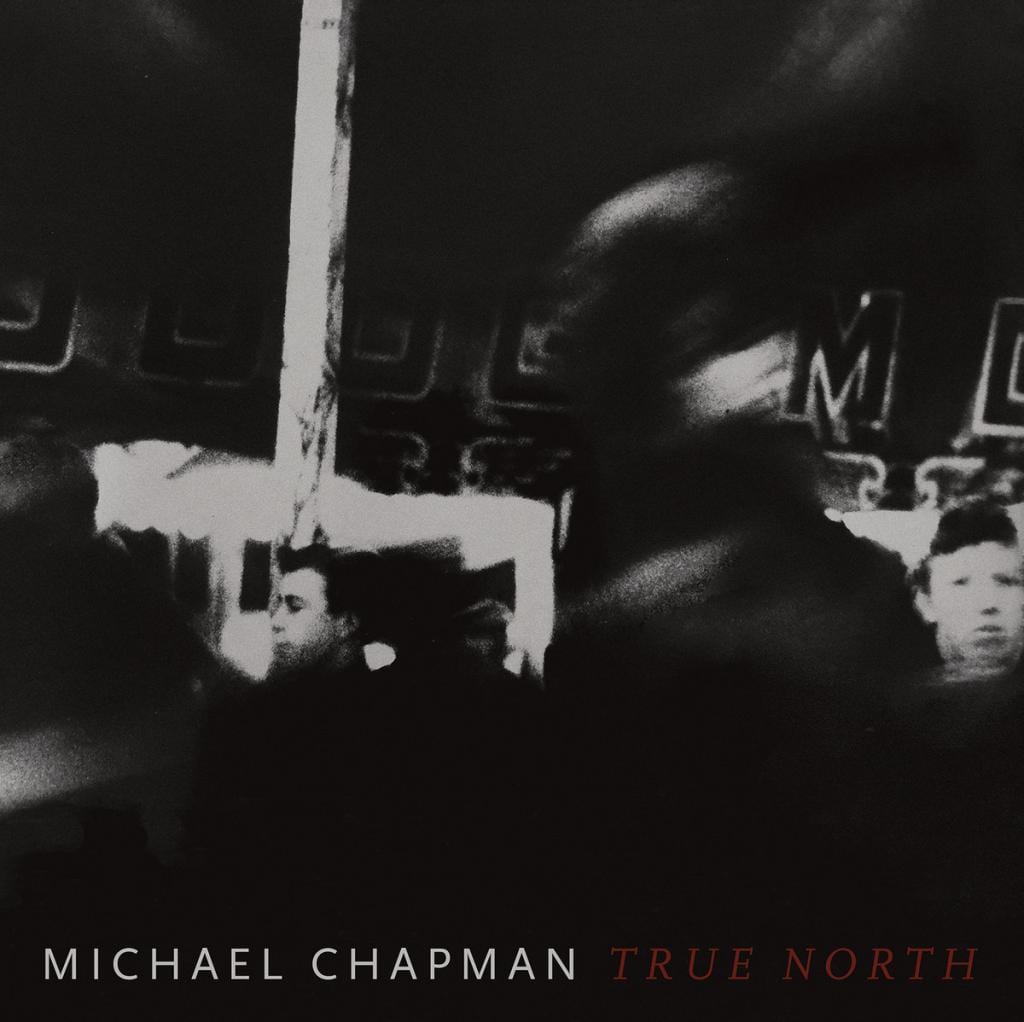Michael Chapman’s Songs of Experience

With the release of True North, Michael Chapman celebrates 50 years in the recording biz, building texturally and thematically on 2017’s critically praised 50. The opening song, “It’s Too Late,” establishes the tone of the record, founded on layered instrumentalism and goth-y lyrics: “There’s ghosts out in the corridors / of this broken down hotel / the place is full of strangers / some don’t wish me well / I wake up with a bottle / of something strong and cheap / and far too many memories / I’m trying not to keep.” Chapman’s voice has aged well over the decades, taking on a gravelly and weathered sound, the track assuming an otherworldly quality.
“After All This Time” includes ambient elements and reverby accents counterbalanced by the earthiness of Chapman’s picked and strummed acoustic. Chapman joins with guest singer Bridget St. John to offer a tremulous harmony, two fragile but wise, veteran but vibrant voices rising from a tapestry of strings, guitars, and echoey fills. “See the man who would climb / then watch him as he falls,” Chapman knowingly sings on “Vanity and Pride,” adding, “All is vanity, all is pride.” These days Chapman is less inclined to mine the natural imagery of his earlier work, depicting a world much less sublime and stripped of innocence. In fact, the external world is hardly ever a focus. Chapman, instead, addresses almost exclusively the domain of experience, the vacillations between excitement and despair, recklessness and humility, and knowing and ignorance. Due to the authentic vulnerability of his voice, he rarely collapses into sentimentality or cynicism, winning the empathy of the listener, how we navigate the best we can, given the inevitability of suffering and hubris.
“Full Bottle, Empty Heart” is Chapman’s tip of the hat to the-stranger-on-the-road-drinking-in-a-strange-bar motif, the romanticizing of loneliness, addiction, and broken-heartedness. “Hell to Pay” features Chapman’s voice effectively strained. Lyrically he makes use of familiar metaphors to colloquialize the Scylla-and-Charybdis (rock and a hard place) and Odysseus-tied-to-the-mast (siren) myths: “We were a ship out on the ocean / we were drifting out of sight / a stroke of cruel fortune / just a trick of the night.” The song addresses the dangers of certitude, how immediate gratification and long-term fulfillment are typically at odds.
Despite being the set’s penultimate song, “Youth is Wasted on the Young” is the centerpiece of the album: “There are so many things that we could have done / and so many songs we left undone.” The singer’s regret is palpable, and yet he seems to imply, pragmatically, that regret is inevitable. For each thing chosen, something else remains unchosen. The album closes with “Bon Ton Roolay” (Good Times Roll), a melody reminiscent of John Prine’s “Souvenirs.” “I’ve been sleeping in my clothes again,” Chapman sings, offering a portrait of the rambler, a life spent “on the road,” literally and metaphorically.
With True North, as with 50, Chapman presents himself as an elder statesman reflecting on the highs and lows of life. The musicians contributing to this project complement and bolster Chapman, forging memorable soundscapes. Returning producer Steve Gunn, who also adds his instrumental chops to the mix, should be applauded for his production skills, which never hijack the project but serve to accentuate the pensive and/or brooding aspects of Chapman’s songwriting and vocals. With an upcoming tour on the calendar, and some of his earlier albums being rereleased, Chapman is now receiving the attention that he most certainly deserves.



